LAST DAY! ⏳ Secure top scores and your uni dream. 💡Only Rp 90,000 for 40 minutes. Offer ends MIDNIGHT!
LAST DAY! ⏳ Secure top scores and your uni dream.
💡Only Rp 90,000/hour TODAY. Offer ends MIDNIGHT!
LAST DAY! ⏳ Secure top scores and your uni dream. 💡Only Rp 90,000 for 40 minutes. Offer ends MIDNIGHT!
LAST DAY! ⏳ Secure top scores and your uni dream.
💡Only Rp 90,000/hour TODAY. Offer ends MIDNIGHT!

Conducted in English

High-Quality Education

Less Expensive

Safe and Comfortable

Multicultural Experience

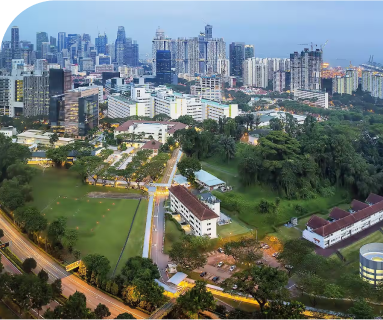
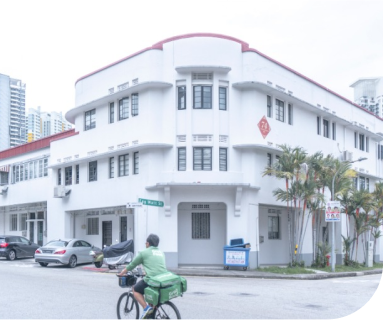
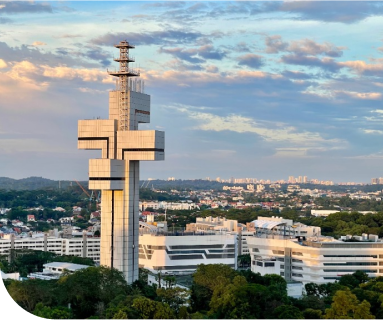
Here are some of the reasons why studying in Singapore is a good idea:
Living in Singapore as an international student requires careful budgeting in a city renowned for its high cost of living. Typically, students can anticipate spending depending on their lifestyle preferences and the type of accommodation they choose.
Tuition Fee for International Students:
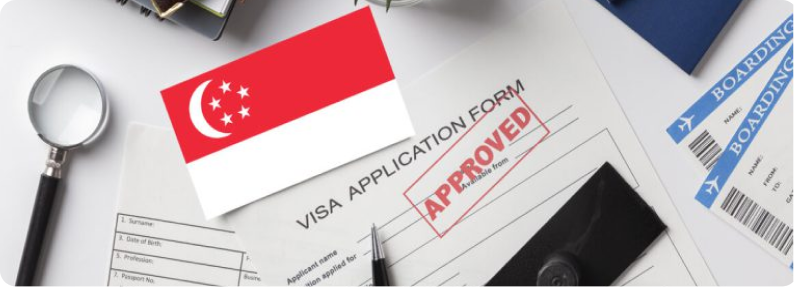
Student visa applications for Singapore are submitted through the official registration system called Student’s Pass Online Application and Registration (SOLAR). The student visa application for college students up to 19 years old will be processed directly by the Singapore Immigration and Checkpoints Authority (ICA). On the other hand, students who are over 20 years old are required to undergo an interview as part of the visa process.
Student visa Sungapore requirements
In Singapore, the government provides a single study visa option known as the Student Pass.
Note: When it comes to applying for a student visa in Singapore, the process is both straightforward and precise. For the application, you’ll need to gather some important documents. These include a valid passport, a recent photograph, the offer letter from the institution, and financial statements to demonstrate that you have enough funds to cover your study expenses. In addition, applicants may need to undergo a medical examination and provide a health report.
To apply for a student visa to study in Singapore, you’ll need the following:
In Singapore, the foundation of the health insurance system is provided by MediShield and MediSave. Individuals who are well-versed in managing their healthcare finances effectively use their Medisave account for regular expenses. In the event that their medical costs exceed their deductible, they can rely on their Medishield account for additional coverage.
If you are not a permanent resident student, government assistance or subsidies for your health care, including MediShield Life coverage, will not be available to you. If you choose not to have private health insurance, you will be responsible for covering the costs of medical treatments and consultations on your own.








• S P Jain Of Global Management
• Nanyang Institute of Management
• Singapore Institute of Management

• Curtin Unversity Singapore
• Amity Global Business School
• London School of Business & Finance

• Curtin University Of Technology
• Amity Global Business School
• Mages Institute of Excellence

• Raffles College of Higher Education
• Singapore Raffles Music College
• Orita Sinclair School of Design

• Le Cordon Bleu
• At-Sunrice Global Chef Academy
• William Angliss Institute
| Accommodation expenses in Singapore for international students | Expenses (approx) |
|---|---|
| Accommodation on Campus | 400 SGD - 1,500 SGD per month |
| Private Hostels | 600 SGD - 2,000 SGD per month |
| Shared Accommodation | 500 SGD - 1,500 SGD per month |
| Private Accommodation | 1,500 SGD - 4,000 SGD per month |

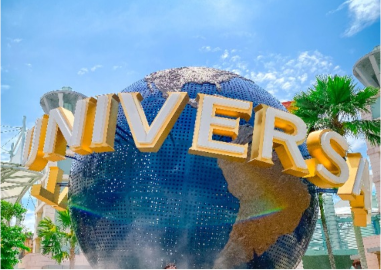
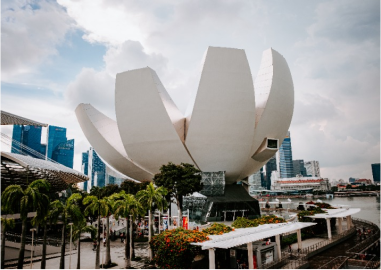
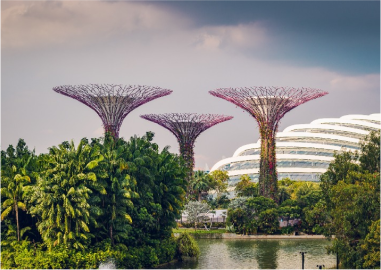


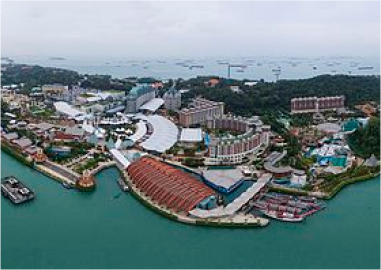
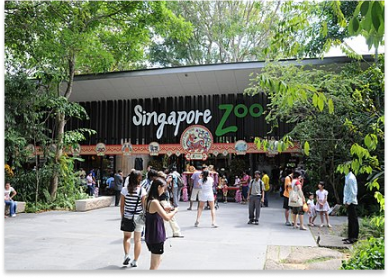

Singapore, a vibrant city in Southeast Asia, is well-known for its exceptional education system and thriving job market. It’s no surprise that numerous international students decide for this dynamic city-state as their preferred choice for higher education. Studying in Singapore offers a great advantage – the chance to work while you pursue your degree and even after you graduate.
In order to work while studying in Singapore, it is necessary to be registered as full-time students in an approved college/university. It is also necessary to acquire a Student Pass, which serves as the student visa in Singapore. With this pass, you can easily enroll in a full-time course at a reputable educational institution in the country. In order to qualify for the Student Pass, it is necessary to first secure admission into an approved programme and fulfil the specific criteria established by the Immigration and Checkpoints Authority (ICA) of Singapore. Students have the opportunity to work part-time for 16 hours per week while their course is in session, and can work full-time during their vacation periods.
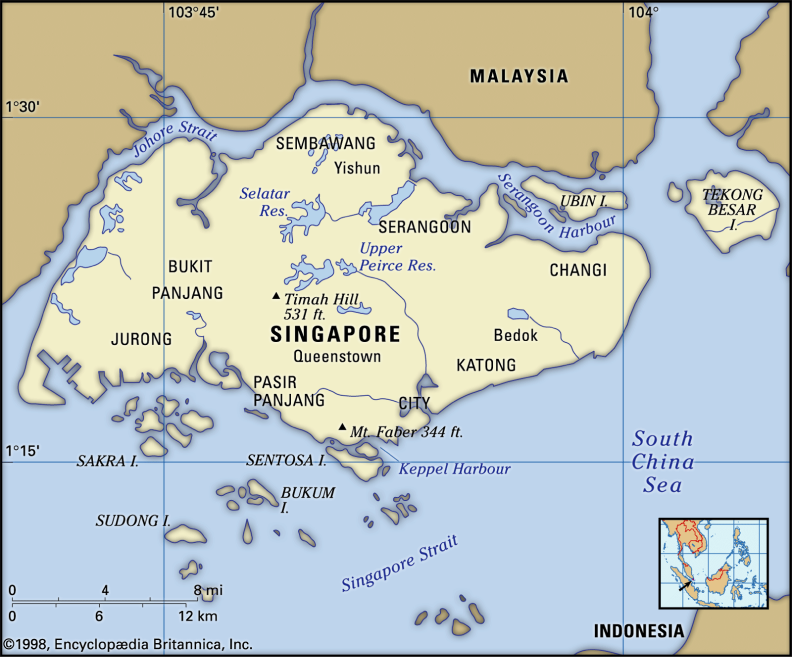
Situated in Southeast Asia, Singapore consists of a 30-mile-long island known as Pulau Ujong, or mainland Singapore, along with 62 smaller islands. The country shares borders with Malaysia to the north and Indonesia to the south. The majority of Singapore’s landscape is flat, with over half of Pulau Ujong sitting at a modest elevation of just 50 feet (15 metres) above sea level. Interestingly, the middle of the island boasts Bukit Timah Hill, which happens to be the highest natural point in Singapore. It reaches an impressive height of 545 feet (166 metres), similar to that of a towering 44-story building.
Singapore’s growth has been fueled by the strategic development of reclaimed land. The land area has expanded significantly over the years, from 581.5 square km (224.5 square mi) in the 1960s to 704 square km (272 square mi) at present. There is potential for further growth, with a projected increase of approximately 100 square km (40 square mi) by 2030. With the rapid urbanisation and expansion taking place, the remaining primary rainforest in the area is scarce, with only the Bukit Timah Nature Reserve standing as a significant forest.
Do’s
Don’ts

Conducted in English

High-Quality Education

Less Expensive

Safe and Comfortable

Multicultural Experience




Here are some of the reasons why studying in Singapore is a good idea:
Living in Singapore as an international student requires careful budgeting in a city renowned for its high cost of living. Typically, students can anticipate spending depending on their lifestyle preferences and the type of accommodation they choose.
Tuition Fee for International Students:

Student visa applications for Singapore are submitted through the official registration system called Student’s Pass Online Application and Registration (SOLAR). The student visa application for college students up to 19 years old will be processed directly by the Singapore Immigration and Checkpoints Authority (ICA). On the other hand, students who are over 20 years old are required to undergo an interview as part of the visa process.
Student visa Sungapore requirements
In Singapore, the government provides a single study visa option known as the Student Pass.
Note: When it comes to applying for a student visa in Singapore, the process is both straightforward and precise. For the application, you’ll need to gather some important documents. These include a valid passport, a recent photograph, the offer letter from the institution, and financial statements to demonstrate that you have enough funds to cover your study expenses. In addition, applicants may need to undergo a medical examination and provide a health report.
To apply for a student visa to study in Singapore, you’ll need the following:

• S P Jain Of Global Management
• Nanyang Institute of Management
• Singapore Institute of Management

• Curtin Unversity Singapore
• Amity Global Business School
• London School of Business & Finance

• Curtin University Of Technology
• Amity Global Business School
• Mages Institute of Excellence

• Raffles College of Higher Education
• Singapore Raffles Music College
• Orita Sinclair School of Design

• Le Cordon Bleu
• At-Sunrice Global Chef Academy
• William Angliss Institute
| Accommodation expenses in Singapore for international students | Expenses (approx) |
|---|---|
| Accommodation on Campus | 400 SGD – 1,500 SGD per month |
| Private Hostels | 600 SGD – 2,000 SGD per month |
| Shared Accommodation | 500 SGD – 1,500 SGD per month |
| Private Accommodation | 1,500 SGD – 4,000 SGD per month |

Register With Gold Star Education And Talk With Our Expert Counsellor








Singapore, a vibrant city in Southeast Asia, is well-known for its exceptional education system and thriving job market. It’s no surprise that numerous international students decide for this dynamic city-state as their preferred choice for higher education. Studying in Singapore offers a great advantage – the chance to work while you pursue your degree and even after you graduate.
In order to work while studying in Singapore, it is necessary to be registered as full-time students in an approved college/university. It is also necessary to acquire a Student Pass, which serves as the student visa in Singapore. With this pass, you can easily enroll in a full-time course at a reputable educational institution in the country. In order to qualify for the Student Pass, it is necessary to first secure admission into an approved programme and fulfil the specific criteria established by the Immigration and Checkpoints Authority (ICA) of Singapore. Students have the opportunity to work part-time for 16 hours per week while their course is in session, and can work full-time during their vacation periods.

Situated in Southeast Asia, Singapore consists of a 30-mile-long island known as Pulau Ujong, or mainland Singapore, along with 62 smaller islands. The country shares borders with Malaysia to the north and Indonesia to the south. The majority of Singapore’s landscape is flat, with over half of Pulau Ujong sitting at a modest elevation of just 50 feet (15 metres) above sea level. Interestingly, the middle of the island boasts Bukit Timah Hill, which happens to be the highest natural point in Singapore. It reaches an impressive height of 545 feet (166 metres), similar to that of a towering 44-story building.
Singapore’s growth has been fueled by the strategic development of reclaimed land. The land area has expanded significantly over the years, from 581.5 square km (224.5 square mi) in the 1960s to 704 square km (272 square mi) at present. There is potential for further growth, with a projected increase of approximately 100 square km (40 square mi) by 2030. With the rapid urbanisation and expansion taking place, the remaining primary rainforest in the area is scarce, with only the Bukit Timah Nature Reserve standing as a significant forest.
Do’s
Don’ts
Customer Service
Customer Service

Enhance your platform experience to the fullest.
Register now and unlock a world of exclusive benefits tailored just for you.